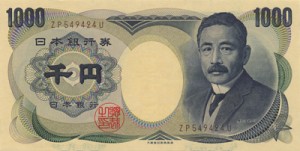Last week Prof. Núria Mas described Abenomics: the economic policies advocated by Japan’s Prime Minister Shinzo Abe. Abe’s plan consists of three items:
- Monetary easing
- Fiscal policy
- Structural reforms

The first of these policies, monetary easing, has provided for headlines during the past two months. On April 4 the Bank of Japan announced a substantial increase in the monetary base over the next two years. Because of the relative size and importance of Japan, the announcement sent shockwaves through global financial markets. Stock markets rallied and sovereign bond yields dropped everywhere –European periphery countries included.
Not everybody is happy
Hyun Oh-seok, the South Korean finance minister, recently told the Financial Times that Japan’s monetary policies “are having quite a negative impact.” The economic consequences of Abenomics include a weaker yen. South Korea has seen its exchange rate appreciate against the yen. So has Taiwan, which competes for the same export markets. The minister is worried about exports.
Countries that worry about the weakness of the yen may respond by loosening their own monetary policy in an attempt to restore previous exchange rate parities. If this happens, the economic boost of Japan’s depreciated currency may be less than expected. There would also be a return of talk on “currency wars” at international meetings such as the G8 or G20.
It has been argued that the ECB should seek to depreciate the euro (possibly by following its own version of Abenomics) to get out of the economic slump. This can backfire. With Europe added into the mix, the round of competitive depreciations may be taken to a new level. And, of course, if everybody engages in competitive depreciations they do ultimately not benefit anybody.


Isn’t it true that during the Great Depression, the first countries to depreciate their currency were the first to come out of the great depression?